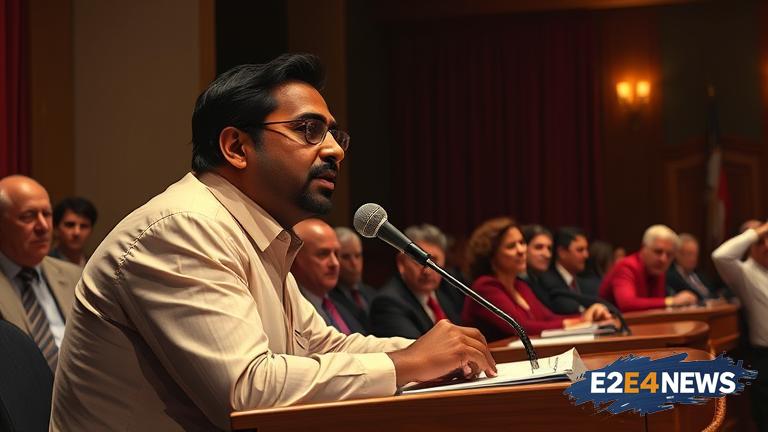Vivek Ramaswamy, a prominent figure in the US, recently attended a town hall in Cincinnati, where he made some provocative statements regarding the state of Black history in the country. According to Ramaswamy, Black history is being swept under the table, and this has sparked a heated debate among attendees and observers. The town hall, which was intended to be a platform for discussion and exchange of ideas, quickly turned into a contentious forum, with some participants strongly disagreeing with Ramaswamy’s views. Ramaswamy’s comments were seen as a critique of the current state of affairs in the US, where he believes that the history and contributions of Black Americans are being ignored or dismissed. He argued that this is a result of a broader cultural and educational shift, where the focus has moved away from traditional American values and towards a more revisionist narrative. Ramaswamy’s statements were met with both applause and criticism, with some attendees praising his courage to speak out on the issue, while others condemned his views as divisive and inaccurate. The debate surrounding Ramaswamy’s comments has highlighted the deep-seated divisions within American society, where issues of race, history, and culture continue to be highly contested. Despite the controversy, Ramaswamy’s appearance at the town hall has sparked a necessary conversation about the importance of preserving and promoting Black history in the US. Many historians and educators have weighed in on the debate, arguing that Ramaswamy’s views are misguided and that Black history is, in fact, an integral part of American history. They point to the numerous contributions made by Black Americans throughout the country’s history, from the abolition of slavery to the Civil Rights Movement. However, others have expressed support for Ramaswamy’s views, arguing that the current educational system and cultural narrative are indeed ignoring or downplaying the significance of Black history. The debate has also raised questions about the role of education in shaping our understanding of history and the importance of promoting diversity and inclusivity in the classroom. As the controversy surrounding Ramaswamy’s comments continues to unfold, it is clear that the issue of Black history and its place in American society will remain a highly contested and debated topic. The town hall in Cincinnati has served as a catalyst for this debate, highlighting the need for a more nuanced and inclusive understanding of American history. In the end, the goal should be to promote a more accurate and comprehensive understanding of the past, one that acknowledges the contributions and experiences of all Americans, regardless of their race or background. By engaging in open and respectful dialogue, we can work towards a more inclusive and equitable society, where the history and culture of all Americans are valued and respected. The debate sparked by Ramaswamy’s comments is a reminder that history is complex and multifaceted, and that our understanding of it is always subject to revision and reinterpretation. As we move forward, it is essential that we prioritize education, empathy, and understanding, and that we work towards creating a more just and equitable society for all. The conversation surrounding Black history and its place in American society is an ongoing one, and it is crucial that we continue to engage with it in a thoughtful and respectful manner. By doing so, we can work towards a more nuanced understanding of the past and a more inclusive and equitable future. The importance of preserving and promoting Black history cannot be overstated, and it is essential that we prioritize this effort in the years to come. Ultimately, the goal should be to create a society where all Americans can feel proud of their history and culture, and where the contributions of Black Americans are recognized and valued. The debate sparked by Ramaswamy’s comments is a step in this direction, and it is essential that we continue to engage with this issue in a thoughtful and respectful manner.





